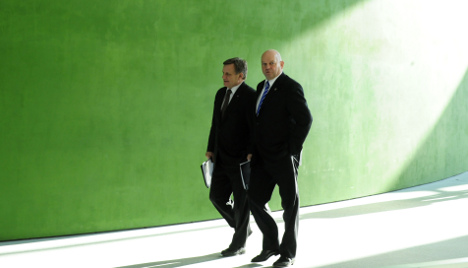Joachim Hunold announced a loss of €32 million for the second quarter of the year, up from the €28 million loss in the first quarter, blaming it on high oil prices, the new airline tax and recent events in North Africa.
The dramatic savings programme will include the reduction of capacity by more than a million seats in the second half of this year, and, according to the Handelsblatt on Thursday, more than a million more seats to be cut next year.
Some of the less profitable routes will be cancelled and flights will no longer go to a number of regional airports, he said.
The focus will be on the airline’s hub airports in Berlin, Düsseldorf, Palma de Mallorca and Vienna, he said.
“In order to become profitable, we have to make cuts in our route network and our fleet,” he said, while warning that the firm would still be in the red for the rest of the year.
He then said he was stepping down from control of the company, adding he was convinced a new leader could accelerate the recently-announced savings programme.
Mehdorn will take over from the start of September. Hunold will remain non-executive director, while Mehdorn is already a member of the board of directors.
Air Berlin shares gained more than four percent on the news but then dropped off again slightly, according to the website of news magazine Der Spiegel.
Hunold was seen as the father of Air Berlin, having taken it over in 1991 and led it to a successful stock market launch in 2006.
The Handelsblatt business newspaper wrote: “The collapse of the former hope for the industry is a warning signal for the entire sector and its customers. The time has come to say farewell to cheap flights. The era in which the discount airlines made air travel a people’s sport with their ridiculously low prices, is finally over.”
The Local/dpa/hc



 Please whitelist us to continue reading.
Please whitelist us to continue reading.
Member comments